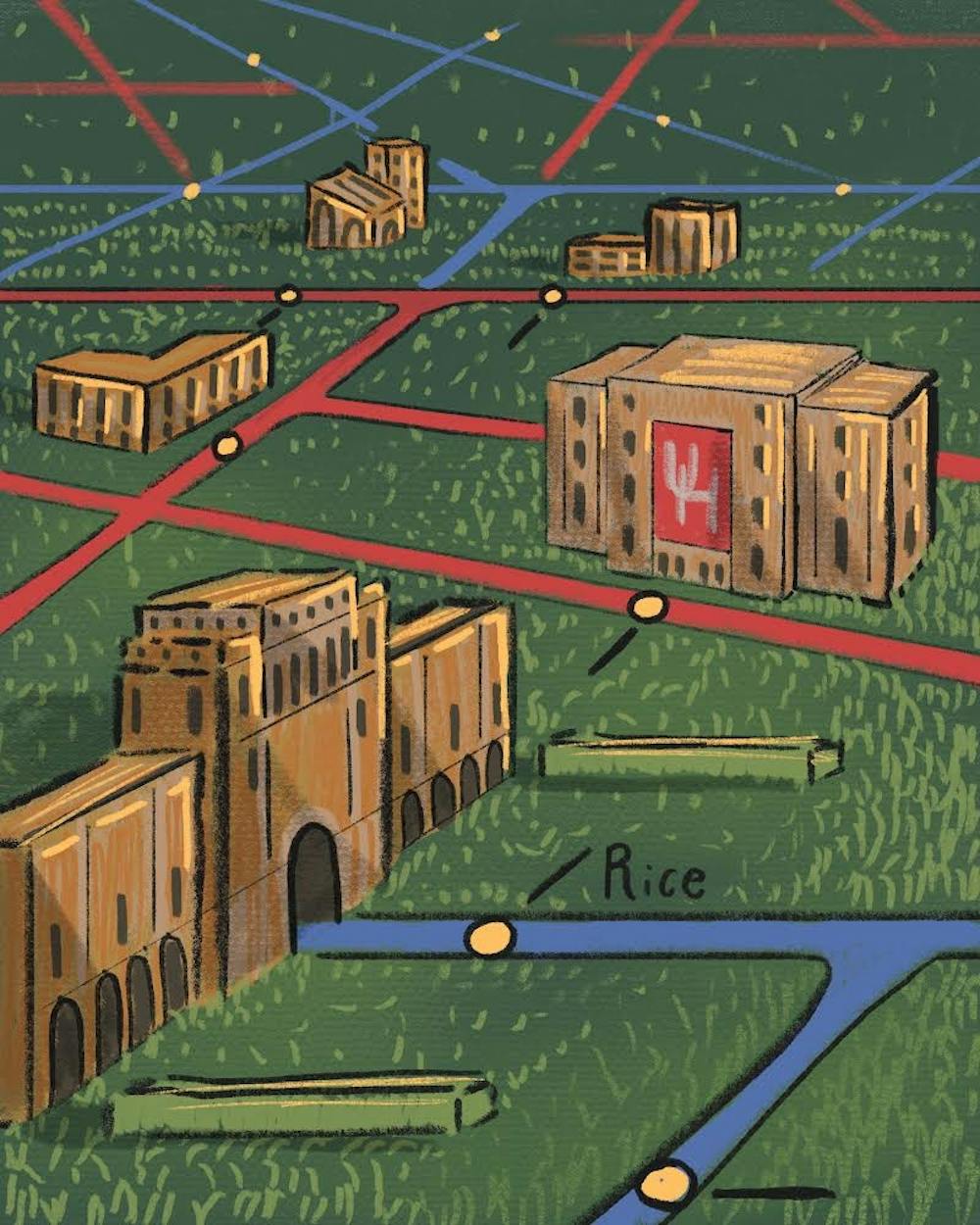Students speak up about METRO line cancelation

Students from Rice and the University of Houston spoke against the cancellation of the METRORapid University Corridor Project at a city council meeting on July 23, 2024. The project proposed a new bus rapid transit system, where buses operate at high frequency within bus-only lanes. Service would have extended across 25 miles in Houston, connecting areas like Westchase and Fifth Ward to central locations including the University of Houston, Texas Southern University, the University of St. Thomas and Houston Community College.
Solomon Ni, former Student Association president, represented Rice at the meeting. Though Rice students may not be personally affected by the project cancellation, Ni said it is important for students at Rice to recognize the privilege of living close to the METRORail Red line.
“[The BRT planned has] no stops through Rice, but it does connect up to the Red Line where they have a transfer station,” Ni, a Jones College senior, said. “I do think that what we can do as Rice students is recognize … how much [the Red Line] has done for us or how useful it is and how fortunate we are to have that in basically our backyard in the medical center, and show our support for the students that are going to be affected by this. It’s mostly commuter students at the University of Houston, and lower-income individuals and households that rely on public transportation like buses and the METRORail.”
Thomas Lu also said that the public transportation at Rice is much better compared to the rest of Houston.
“I think the service frequency around Rice is actually very, very good,” Lu, a Will Rice College junior, said. “I think it’s among the best in Houston. I think it’s just because we’re located so close to the medical center, which is a huge job center, but the rest of Houston doesn’t have as much frequent bus or rail frequencies, and I think it really limits how far our students get without a car, and why so many people feel like they need to bring a car to Houston so that they can get out and explore.”
Both Ni and Lu said they were disappointed and surprised when the project was canceled.
“I don’t think anyone was concerned about it going forward,” Ni said. “They had a lot of community meetings being like, ‘This is what’s going to happen. We want your input on it.’ They were going through this process with the intention of moving forward. And, so it was kind of a shock whenever the new mayor, the new METRO administration, after Mayor Whitmire took office, basically was like, ‘Yeah, we’re canceling this really big project we’re doing.’”
“I was honestly very disappointed in the city government for canceling a project because METRO has emphasized this is their next big project that they’re doing, and they allocated a lot of their resources into it,” Lu said. “Now that it’s canceled, I don’t see what [city government is] going to do because there seems to be a lot of local opposition to the expansion of the light rail lines.”
Though it is possible to get to other areas in Houston using local buses instead of existing METRORail lines, Lu said that local buses can be more difficult and time-consuming to use because they are less consistent due to traffic and some lines run less frequently.
“The light rail is a lot more consistent in when it arrives,” Lu said. “It’s usually only one minute late at most. I’ve had a couple of times where it’s been more than that, but usually it’s very consistent because there’s dedicated lanes, dedicated signals. The buses really depend on if it’s a good day or a bad day.”
Many students at Rice use public transportation often — for reasons ranging from commuting to off-campus employment, running errands and getting to and from off-campus housing.
Lu also noted that he prefers using public transportation to owning a car and driving in Houston as it is not only cheaper but also safer considering the dangerous highways in Houston.
Ni said he hopes that the Student Association will pass some sort of resolution to demonstrate Rice students’ solidarity with students at other universities.
“I want to engage the Student Association, at least in the nominal way of showing our solidarity with these other universities, and the people that would be served by this line,” Ni said. “Basically saying, ‘Yeah, we throw our weight behind it because, A, we have this great access to the Red Line, and B, we think that everyone else should also have the same kind of access.’”
More from The Rice Thresher

Rice to support Harvard in lawsuit against research funding freeze
Rice, alongside 17 other research universities, filed an amicus curiae brief in support of Harvard University’s lawsuit against the Trump administration over more than $2 billion in frozen research grants.

Mayor Whitmire discusses ‘the state of Houston’ between audience protests at Baker Institute
John Whitmire’s remarks on the city’s budget, transportation and infrastructure were interrupted twice by shouts from audience members at a Baker Institute event May 29. At the event, which was open to the public, Whitmire spoke about the current state of Houston alongside former county judge Ed Emmett.
Rice reaffirms support for international students after Trump administration targets Harvard
Rice and the Office of International Students and Scholars said in a May 23 email that they are monitoring the Trump administration’s actions towards Harvard to bar the school from enrolling international students. A federal judge temporarily halted the move less than 24 hours later.


Please note All comments are eligible for publication by The Rice Thresher.